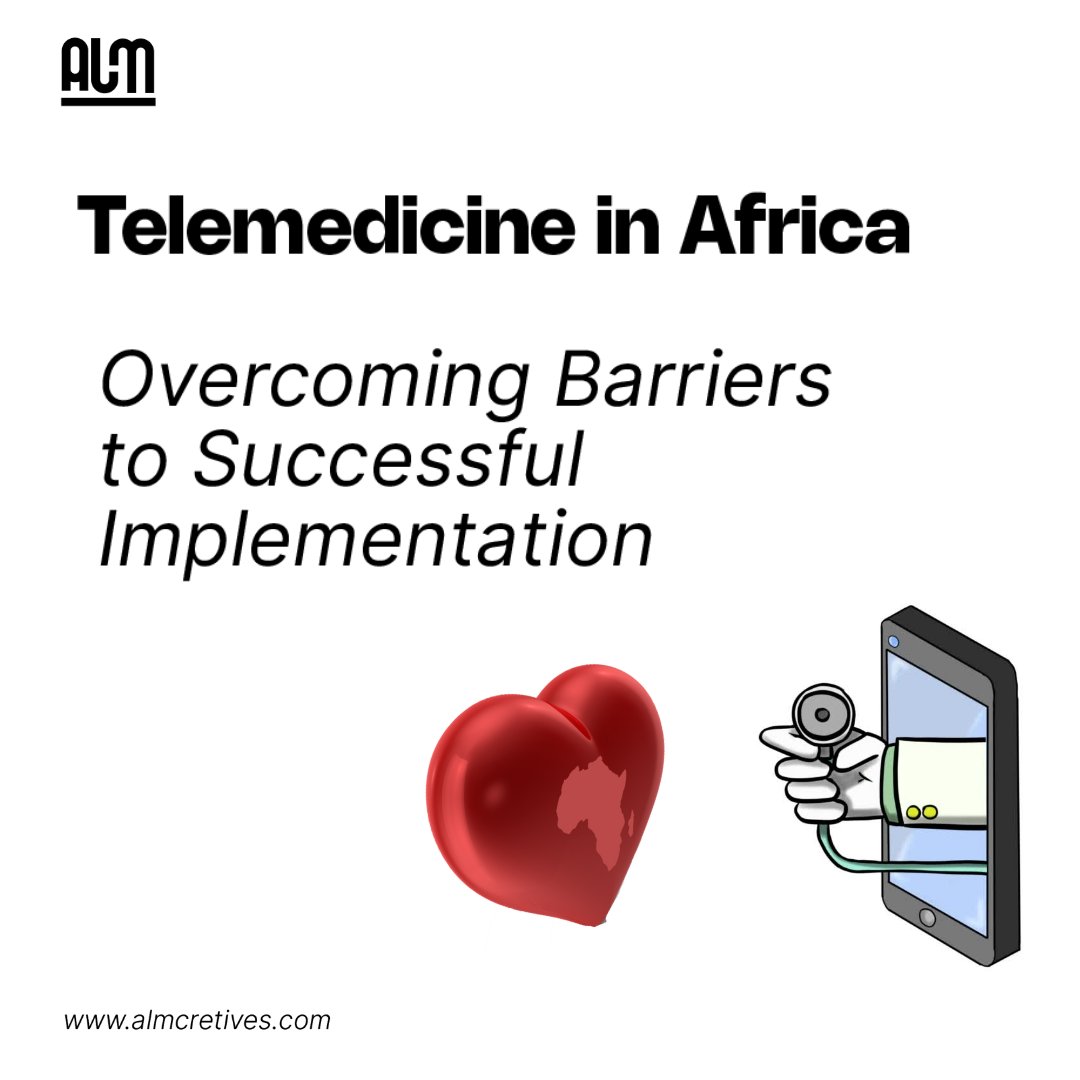Search
Telemedicine in Africa: Overcoming Barriers to Successful Implementation
Business and advices
Telemedicine has become a critical tool in the delivery of healthcare services in Africa, providing a range of benefits, including improved patient outcomes, increased access to healthcare, and cost savings. However, despite the numerous advantages, telemedicine has faced numerous barriers to implementation in Africa, which have hindered its adoption and effectiveness.
One of the key barriers to telemedicine implementation in Africa is limited internet access. Many parts of Africa lack reliable internet access, which is essential for telemedicine services. This can make it difficult for patients to connect with healthcare providers, and it can also make it difficult for healthcare providers to share patient data.
Another barrier to telemedicine implementation in Africa is unreliable power supply. Many parts of Africa also have unreliable power supplies, which can make it difficult to use telemedicine devices and equipment. This can lead to disruptions in telemedicine services, which can be frustrating for patients and healthcare providers alike.
Cultural barriers can also pose a challenge to the implementation of telemedicine in Africa. There may be cultural barriers to the acceptance of telemedicine, such as a preference for traditional forms of healthcare or a lack of trust in technology. This can make it difficult to convince patients and healthcare providers to adopt telemedicine services.
Lack of training is another barrier to telemedicine implementation in Africa. Healthcare workers in Africa may not have the training or skills necessary to use telemedicine effectively. This can lead to misdiagnoses and other errors, which can have serious consequences for patients.
Finally, telemedicine can be expensive to implement and maintain, especially in resource-poor settings. This can make it difficult for governments and private sector organizations to invest in telemedicine projects.
Despite these barriers, there are a number of factors that are driving the growth of telemedicine in Africa.
The increasing availability of affordable internet access: The cost of internet access in Africa has been declining in recent years, making it more affordable for people to access telemedicine services.
The growing awareness of the benefits of telemedicine: There is a growing awareness of the benefits of telemedicine among African policymakers and healthcare leaders.
The development of innovative telemedicine solutions: There are a number of innovative telemedicine solutions that are being developed specifically for African markets. These solutions are designed to address the unique challenges of implementing telemedicine in Africa.
There are a number of ways to overcome the barriers to telemedicine implementation in Africa:
Invest in infrastructure: Governments and private sector organizations can invest in infrastructure, such as internet access and power supplies, to support telemedicine services.
Provide training: Healthcare workers can be provided with training on how to use telemedicine effectively.
Develop culturally appropriate solutions: Telemedicine solutions should be developed that are culturally appropriate for African patients and healthcare workers.
Partner with local organizations: Governments and private sector organizations can partner with local organizations to implement telemedicine projects.
Provide financial support: Governments and private sector organizations can provide financial support to help offset the costs of telemedicine implementation.
The successful implementation of telemedicine in Africa will require a multi-pronged approach that addresses the unique challenges of the continent. By investing in infrastructure, providing training, developing culturally appropriate solutions, and partnering with local organizations, Africa can overcome the barriers to telemedicine implementation and realize the potential of this technology to improve healthcare delivery.
In addition to the above, here are some other interesting facts about telemedicine in Africa:
The African Union has set a goal of providing universal access to healthcare by 2030. Telemedicine is seen as a key part of achieving this goal.
There are a number of telemedicine projects already underway in Africa. These projects are providing healthcare services to people in rural and remote areas, as well as to people who are unable to access traditional healthcare services due to cost or other barriers.
Telemedicine is not without its challenges. However, the potential benefits of telemedicine are significant, and the technology is continuing to develop. As a result, telemedicine is likely to play an increasingly important role in healthcare delivery in Africa in the years to come.




